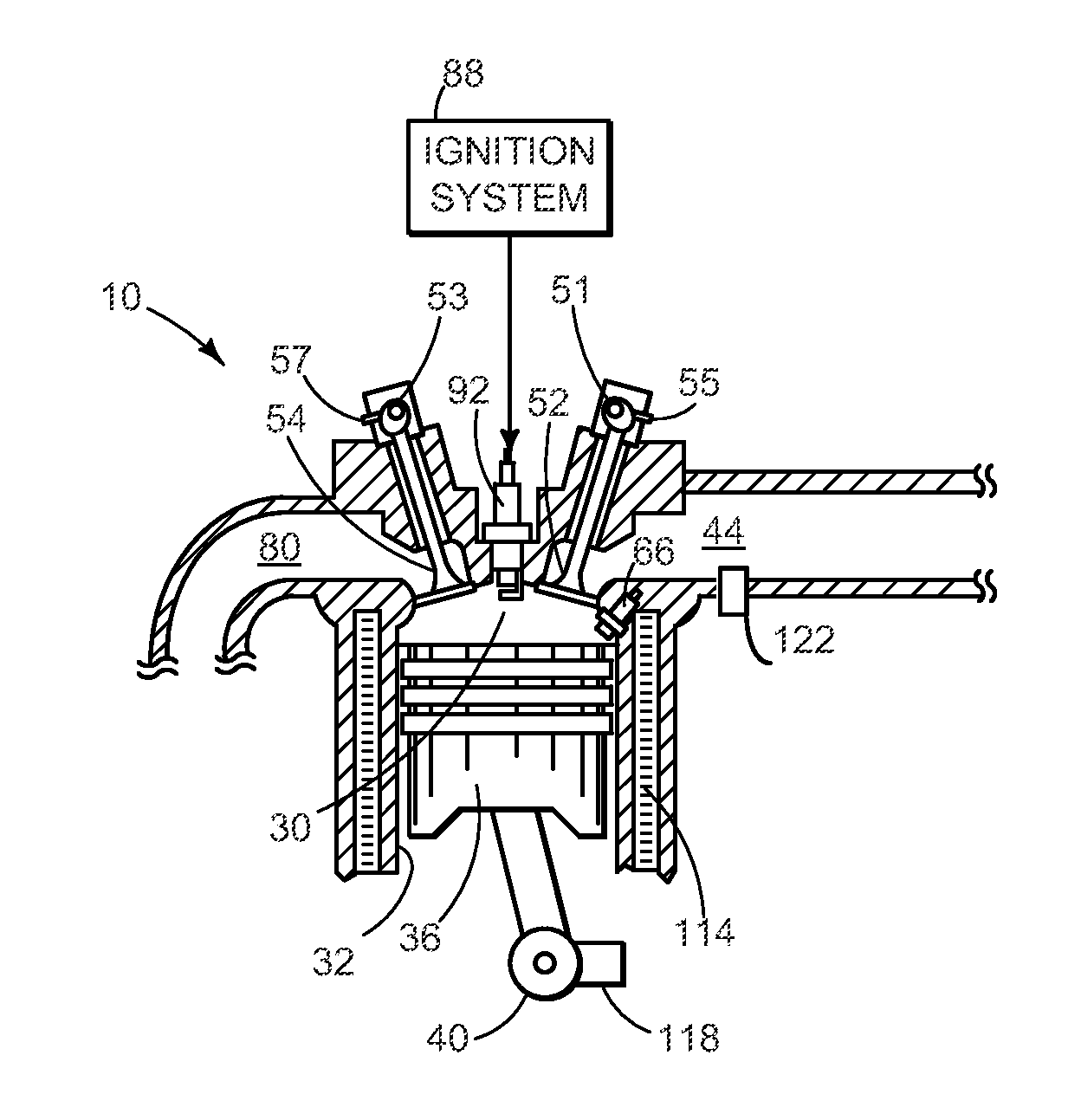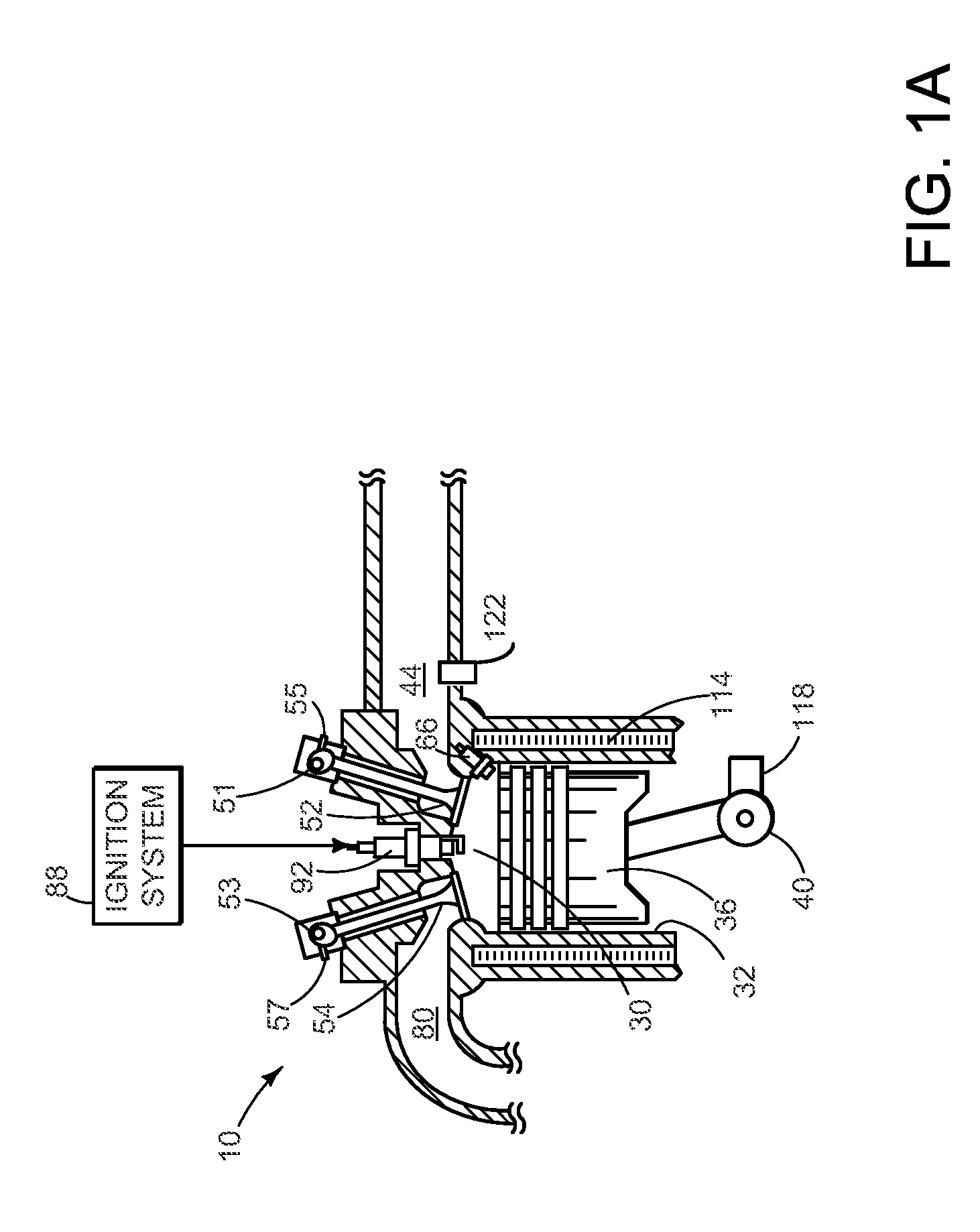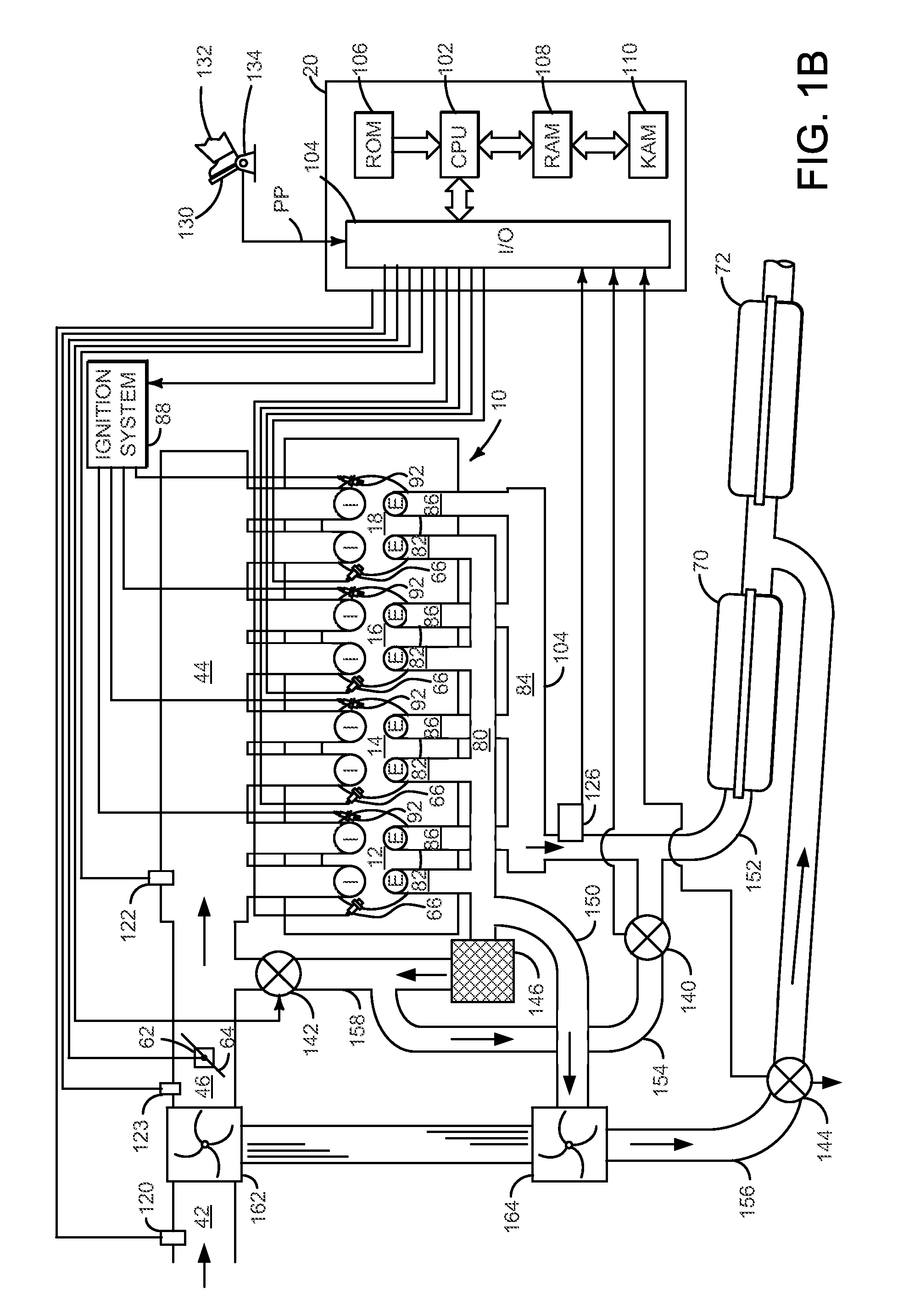Method and system for turbocharging an engine
- Summary
- Abstract
- Description
- Claims
- Application Information
AI Technical Summary
Benefits of technology
Problems solved by technology
Method used
Image
Examples
Embodiment Construction
[0015]The present description is related to operating an engine. In one non-limiting example, the engine may be configured as illustrated in FIGS. 1A and 1B. In one example, blow-down gases of a cylinder are separated from residual cylinder gases and the engine is operated according to the methods of FIGS. 4A-4B providing the signals of FIGS. 2-3.
[0016]Referring to FIG. 1A, a single cylinder of an internal combustion engine 10 is shown. Internal combustion engine 10 is comprised of a plurality of cylinders as shown in FIG. 2. Engine 10 includes combustion chamber 30, coolant sleeve114, and cylinder walls 32 with piston 36 positioned therein and connected to crankshaft 40. Combustion chamber 30 is shown communicating with intake manifold 44 and exhaust manifold 80 via respective intake valves 52 and exhaust valves 54. Each intake and exhaust valve may be operated by an intake cam 51 and an exhaust cam 53. Alternatively, one or more of the intake and exhaust valves may be operated by ...
PUM
 Login to View More
Login to View More Abstract
Description
Claims
Application Information
 Login to View More
Login to View More - R&D
- Intellectual Property
- Life Sciences
- Materials
- Tech Scout
- Unparalleled Data Quality
- Higher Quality Content
- 60% Fewer Hallucinations
Browse by: Latest US Patents, China's latest patents, Technical Efficacy Thesaurus, Application Domain, Technology Topic, Popular Technical Reports.
© 2025 PatSnap. All rights reserved.Legal|Privacy policy|Modern Slavery Act Transparency Statement|Sitemap|About US| Contact US: help@patsnap.com



